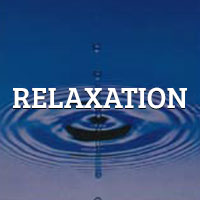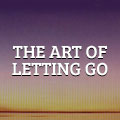CONNECTION
Some day, after we have mastered the winds, the tides and gravity…we shall harness the energies of love.
Teilhard de Chardin (1881-1955)
Over the years my spiritual practices have become more and more finely tuned to a connection with a Divine Presence which I experience quite tangibly as the most exquisite energy of love. I would like to share with you my first powerful awareness of this Presence and its effect upon me by quoting an entry from the diary that I always keep when in retreat:
Monday July 17th 2000. I experienced today what in my words I would call a profound connection with the Beloved of my soul. Sitting in meditation the top of my head and my root chakra were pulsing. Suddenly I had the feeling that the top if my head was lifting off and then, totally unexpectedly, there was the feeling of an energy descending from above, the sweetest and most delicious energy of pure LOVE. I ceased to be little me altogether, for a few minutes anyway, and seemed to become that energy “Not I but Christ liveth in me” To be in that consciousness permanently would be my idea of enlightenment. One could just be pure love, no self-consciousness, no doubts, extraordinary, exquisite. Did I experience the descent of the Holy Spirit?
I lost the sense of oneness with this love gradually but remained sometime in its afterglow. The same happened again later, softening and embracing my whole being and again the intensity of the experience gradually declined but it left me weeping with a strange sweet blend of joy and sadness and gratitude and deep remorse for ever having doubted the reality of the Christ Consciousness. I feel different-joyousness has deepened and feels constant.
Paradoxically, an encounter with the Beloved can also awaken feelings of profound grief. Again these are experienced in the heart centre in the centre of the chest. It truly feels as though one’s heart is breaking. Like the love, it seems all encompassing and the world is full of grief. This ecstatic blend of joy and sorrow and love lingers like the after taste of some delicious fruit. I now understand so well what Joseph Campbell meant when he spoke of “participating joyfully in the sorrows of the world”.
Connecting with an inner Light and Presence has become like a daily early morning ritual for me. In my morning meditation it is as though I am plugging myself in to a non-physical energy above my head that recharges my batteries and lights me up for the day. The experience is always one of heart opening and is a constant source of wonderment to me.
I like to think that I am connecting with the Self or the Christ Consciousness or the Divine Beloved of the mystics but who knows, maybe it is just a passing angel relatively low key in the spiritual hierarchy. It doesn’t matter. What does matter is its impact upon me. As Jung said:
No one can know what Ultimate things are… we can nevertheless take them as we experience them and if such experience helps to make life healthier, more beautiful, more complete and more satisfactory to yourself and those you love, you may safely say: this is the grace of God. (1958:105)
For myself I know that I would never have been blessed with such a sublime experience had I not taken up a disciplined practice of meditation. The winds of Grace are blowing in abundance but you have to hoist your sails to catch them. Having said that, I would also like to make the point yet again that mystical experiences are probably a great deal more commonplace than we realize, especially these days. In her book Love’s Alchemy, spiritual therapist Sky speaks of the strange familiarity and normality of mystical experience:
Nothing can describe the feeling of pure aware being. All I can say is that it is an unspeakably wondrous space of peace and happiness, quietly so, beyond any mental conceptualization. If I locate the feeling in my body, it is around my heart, and yet not restricted to the heart, or indeed, to the confines of my body. It is familiar and yet mysterious. It is utterly normal and yet so special. Even when the mind is active, there is the achingly sweet sense of Presence, always present, like breathing even when I am most unaware. (2003:135)
I can identify with that curious feeling of familiarity. Whenever I have experienced that sense of Presence there is a sense of perfection. It was as though this was the only consciousness that could ever be. And when it left me, I thought that it would be the easiest thing in the world to reconnect with. Not so of course. I was exiled again. Not completely however. The taste of the Beloved lingers as a backdrop to my world of the relative. My diary entry goes on to reflect on the naturalness of the experience:
Is the energy of my “connection” in principle equivalent to the oxygen which organisms learnt to metabolize it in the primordial swamp and which transformed life on earth?
A strange thought indeed but what I was suggesting was that my experience of mystical connection is a part of our natural evolution. It is the energy of transpersonal consciousness. Whether we realize it or not I believe Grace touches us all at some stage in our lives–an exquisite experience of beauty or love or joy that leaves us feeling richer in our humanity. What I am saying here however (and it is the core message of the entire book) is that these experiences of the Transcendent need not be so fleeting. The sublime mystical experience that I am calling “connection” can be awakened to enrich every conscious moment. What is more, it is becoming increasingly obvious that if we don’t recognize this and begin to put in place the skilful means of attaining it, we will muff our cue in the drama of evolution with dire consequences for ourselves and our planet.
Mystical literature of course abounds with experiences of “connection” and those that are akin to my own now leap out at me. For example, the words of many of the hymns that I loved as child have come to mean so much more to me because I can now understand them as being mystically inspired and I actually know what they are talking about. For example, the last verse of Lead us Heavenly Father lead us:
Spirit of our God descending
Fill our hearts with heavenly joy
Love with every passion blended,
Pleasure that can never cloy;
Thus provided, pardoned, guided,
Nothing can our peace destroy.
Mystical connection is everything. Without it we are nothing more than good or bad puppets, victims of our conditionings and our samskaras.
One of my favourite stories as a child was Pinocchio. I realize now that in many ways it is another Psyche and Eros story. The Blue Fairy is Pinocchio’s Divine Beloved. She constantly took pity on Pinocchio and rescued him from the consequences of his selfish excesses. Pinocchio, like Psyche, had to endure many hardships before becoming mature enough to be the recipient of Divine Grace. Both stories speak of the awakening power of love: “Love is the pain of being truly alive” (Joseph Campbell). The blossoming of Pinocchio’s love for his “father” Geppetto was the turning point for Pinocchio. It connected him to his love for the Fairy and in return she bestowed upon him the gift of being fully human:
How ridiculous I was when I was a marionette! And how glad I am that I have become a real live boy. (Collodi 1942: 96)
In simple terms, all our spiritual practices are about making us less like a puppet and more like a human being.
In sharing something of my experience of “connection” I would like to make it clear that I am not talking about anything as grandiose as enlightenment or communication with God. I know full well that my mystical experiences, delicious though they are, amount to nothing more than a mere taste, an inkling, a savouring of the rich flavours of consciousness that await us in the transpersonal realm. What they do signify is that I am waking up to the realization that we are so very much more than a mammalian biped with a neo-cortex and a capacity for conceptual thinking. In any event it is not the transpersonal experience itself that is the measure of our progress, but the extent to which we can embody it. As we have seen that requires the building and awakening of certain subtle structures of consciousness on which the experiences can rest.
Let me also make it clear that I am not suggesting that yogic purification and third eye practices are the only way to do that. There are no shortage of techniques and teachers and spiritual lineages on hand these days to guide you. It is a question of finding one that works for you and persevering with it. Perseverance is a key word in spiritual awakening. Switching from one set of practices to another is not a good idea.
Twentieth century Indian mystic and guru Anandamayi Ma was asked by one of her disciples to advise on the best discipline for spiritual awakening. Her answer was that the best discipline is the one that you are prepared to practise. I would qualify that with the Yoqui Indian mystic and sage Don Juan’s injunction to make sure it has a heart. In other words make sure that it is releasing you from ego centred agendas. I like the warning given by spiritual evolutionary Michael Dowd on this critical point:
The bottom line is this: If our spiritual practices do not tangibly help us grow in integrity-that is, in right relationship with others, our world, and the future – then the pursuit of enlightenment and the quest to free ourselves from troubling emotions (via witnessing them to death) can lead to narcissism. Spiritual practice thereby morphs into metaphysical masturbation.(website manifesto: www.thankgodforevolution.com)12
In the end it is not the techniques that matter but the energy behind them. The success of your spiritual practices rests in no small measure on the sincerity and intensity of your aspiration and your receptivity. This is another reason why purification practices are such an important adjunct to spiritual practices. They help to ensure that the energy you connect with is truly transpersonal.
Persevere with your practices from a space of devotion and humility. They will take you into the stillness and silence where you learn to just “be”. In Samuel Sagan’s words: “there is no doing just letting happen”. In that state of consciousness, the magic of “connection” can arise.
The power and simplicity of spiritual connection has been movingly captured for us by Christian mystic Noel Goldsmith in these few words from his spiritual classic The Infinite Way:
… meditate or pray in any of the ways that have been shown forth, and each meditation will lead to the final step where you do not pray at all; where you just wait and let a sense of peace engulf you, culminating in release. That release itself is the Presence that goes before you to make the crooked places straight. (1954:36)
To be able to simply “be” in that Presence, even fleetingly, is to truly know what it means to embody the Transcendent. To be able to carry the Light of that Presence into everyday consciousness is our most precious gift to the world. It is not a question of words or knowledge. It is an energy event and it will “make the crooked places straight”.
The above is an excerpt from Gillian’s book Psyche’s Yearning.






 sending...
sending...
